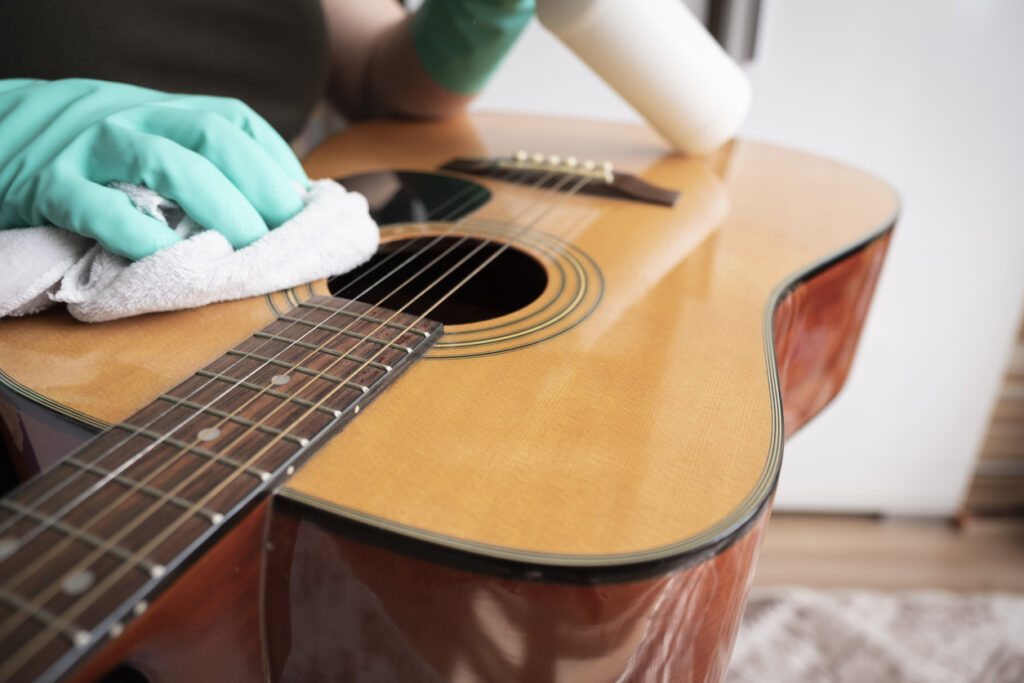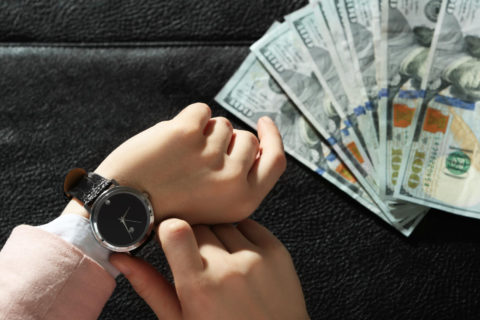Planning to sell to a pawn shop? This no-nonsense guide offers you crisp insights into how to navigate the selling process for a favorable outcome when selling to a pawn shop. Here, you’ll learn how to best evaluate, prepare, and negotiate the sale of your items for the highest possible cash offer while avoiding common mistakes. Whether you’re a first-timer or seasoned used store seller, uncover the key steps to make your pawn shop experience both profitable and straightforward.
Key Takeaways
- The selling process at a pawn shop involves appraisal, negotiation, and receiving cash, requiring realistic expectations of item value and strong negotiation skills to secure the best deal.
- Using a regulated pawn shop like Lincoln Pawn in Anaheim, CA, ensures safety, security, and fair pricing due to adherence to industry standards and state licensing.
- While pawn shops offer immediate cash access without credit checks, advantages like quick loans come with potential drawbacks such as lower offers for items and a risk of losing ownership permanently.
Understanding the Selling Process at Pawn Shops
The transaction process at a pawn shop involves the following critical steps:
- Evaluation: Most pawn shops aim to ascertain an item’s value that would enable them to resell it for profit. This valuation is part of either pawning, which entails borrowing money using the item as collateral, or selling the item directly.
- Haggling: After establishing its worth, there is usually room for bargaining between the pawn shop and the individual looking to sell their possession. The seller might have a specific minimum figure in mind. Most pawn shops will negotiate aggressively to acquire items at minimal cost.
- Cash Exchange: When both parties agree on price terms, cash is provided to compensate for transferring ownership of the sold merchandise.
Keep in mind that given that a pawn shop’s business model revolves around making returns from sales transactions involving second-hand articles you’re interested in exchanging for money, your financial expectations should be grounded when determining what these establishments can offer during such exchanges.
Appraisal Process
Pawn shops evaluate the value of an item based on multiple considerations that include:
- The state of the item
- Current demand for it
- Its market value
- The brand’s reputation, if applicable
- How old the item is
In order to provide fair and current prices, they consult pricing guides (like blue books), access online databases, and perform thorough internet searches to compare retail versus wholesale values.
For jewelry appraisals, pawn brokers scrutinize inherent attributes such as metal weight, gemstone quality, and workmanship. They do not take into account sentimental value when determining their offer. Obtaining the advice from various independent appraisals can be advantageous in accurately gauging what your piece might sell for.
Negotiating the Deal

Negotiating is an essential component when it comes to selling at pawn shops. The majority of these establishments are flexible with their pricing and may typically seek to acquire items for up to 60% of the item’s value in a transaction. Thus, possessing proficient negotiation capabilities can improve your chances of securing a more favorable deal by recognizing the needs of the buyer, being informed about the assessed value sell the item, and exuding confidence throughout the process.
Before engaging in negotiations at regulated pawn shops, it’s crucial to have a clear understanding of your minimum acceptable price point. Since most pawn shops allow room for bargaining on prices within certain limits, taking advantage of this wiggle-room could provide you with enhanced terms in your final agreement.
Receiving Cash
Upon concluding the negotiation, customers can expect to be paid. Most pawn shops pay out in cash. There are instances where checks or electronic transfers may also be offered as payment options. In order to secure the cash payout, patrons must complete and sign some formal documentation that typically involves a simple sales receipt or a pawn ticket.
To adhere to legal standards aimed at preventing theft and fraudulence, presenting valid identification is mandatory when acquiring cash from a pawn shop. Pawn shops keep meticulous records of all financial transactions involving cash distributions for added customer peace of mind about the fairness of their dealings. Such procedures guarantee swift access to funds without necessitating a credit check, thus serving urgent monetary requirements efficiently.
The Benefits of Selling to a Regulated Pawn Shop

Opting to transact with a regulated pawn shop like Lincoln Pawn in Anaheim, CA has numerous advantages. These shops prioritize security and safety highly, fostering trustworthiness and maintaining a favorable standing. Possession of an authentic state license guarantees their legitimacy and adherence to the standards set by the industry.
In California, customers can expect secure payments and protected transactions when engaging with regulated pawn shops. These establishments conduct impartial evaluations of your belongings and present competitive rates. Whether you are looking into pawning or selling items, these reputable shops assure dependable service that you can rely on.
Safety and Security
Pawn shops that adhere to regulations have instituted several security protocols, which encompass:
- The utilization of surveillance cameras as a theft deterrent and for the protection of staff and patrons.
- Confirmation of customer identities.
- Keeping precise logs of transactions to curb fraudulent practices.
These stringent safety and security measures are pivotal in preserving an esteemed reputation for pawn businesses. When engaging with these pawn shops, customers can anticipate secure interactions, regardless of whether they are pawning electronics, watches or diamonds.
Fair Pricing
When you’re considering selling an item to a pawn shop, it’s important that you receive an equitable price for your goods. Pawn shops that operate under regulatory compliance are committed to maintaining industry benchmarks, providing fair compensation and market-driven prices for the items they purchase. As a seller, this means there’s no need to fret about being unfairly low balled. Rather, one should anticipate a just transaction.
A wide variety of merchandise is competitively assessed and priced by pawn shops—including jewelry and electronics—which these establishments are keen on acquiring. Opting for a reputable pawn shop can lead to more precise evaluations, especially if they specialize in certain categories like jewelry. By doing so, the establishment is equipped with the expertise needed to accurately appraise your valuables and extend an offer reflecting their true worth.
Pros and Cons of Selling to a Pawn Shop
Engaging in a financial transaction with a pawn shop comes equipped with both benefits and drawbacks, which should be considered for an educated decision. Pawn shops present customers with the option to swiftly acquire emergency cash through a temporary exchange rather than committing to outright selling their items. It’s worth noting that when articles are sold or used as collateral for loans at these establishments, they may not fetch the highest possible value and loan values can vary greatly.
Pawn shops serve as accessible venues for fast cash, but also bear inherent negatives. We shall explore deeper into both the upsides and pitfalls associated with transacting at a pawn shop.
Advantages
One of the biggest advantages of pawn shops is immediate access to fast cash through short term loan options, including short term loans. Pawn loans can be approved in mere minutes, ensuring a swift solution for those in urgent need of funds. Clients can receive their money quickly, adding to the instant financial relief provided by pawn shop transactions.
Moreover, pawn shops buy out transactions provide the advantage of instant fund access without credit checks, making them accessible to a wider range of customers. Selling items for cash to pawn shops can result in a higher immediate financial return than other selling methods. In essence, if you need more money in your pocket quickly, pawning could be a viable option.
Disadvantages
Conversely, the proposals from pawn shops typically fail to match the highest possible value, with the actual sums offered for pawned goods inconsistent. When you sell an item at a pawn shop, it’s important to remember that you forfeit its ownership. Consequently, it cannot be retrieved or pledged as collateral for a loan term and subsequent loans.
The act of pawning jewelry entails the risk of permanently parting with these items at much lower market rates if one fails to clear the loan. And when considering selling your possessions to a pawn shop, one must remember they assess items based on their full resale value and potential. Therefore, weighing these risks carefully is crucial before making a decision about pawning or offloading your belongings.
Opting to transact with a regulated pawn shop like Lincoln Pawn in Anaheim, CA comes with numerous advantages. These shops prioritize security and safety highly, fostering trustworthiness and maintaining a favorable standing. Possession of an authentic state license guarantees their legitimacy and adherence to the standards set by the industry.
In California, customers can expect secure payments and protected transactions when engaging with regulated pawn shops. These establishments conduct impartial evaluations of your belongings and present competitive rates. Whether you are looking into pawning or selling items, these reputable shops assure dependable service that you can rely on.
Safety and Security
Pawn shops that adhere to regulations have instituted several security protocols, which encompass:
- The utilization of surveillance cameras as a theft deterrent and for the protection of staff and patrons.
- Confirmation of customer identities.
- Keeping precise logs of transactions to curb fraudulent practices.
These stringent safety and security measures are pivotal in preserving an esteemed reputation for pawn businesses. When engaging with these pawn shops, customers can anticipate secure interactions, regardless if they are pawning electronics, watches or diamonds.
Fair Pricing
When you’re considering selling an item to a pawn shop, it’s important that you receive an equitable price for your goods. Pawn shops that operate under regulatory compliance are committed to maintaining industry benchmarks, providing fair compensation and market-driven prices for the items they purchase. As a seller, this means there’s no need to fret about being unfairly low balled. Rather, one should anticipate a just transaction.
A wide variety of merchandise is competitively assessed and priced by pawn shops—including but not limited to jewelry and electronics—which these establishments are keen on acquiring. Opting for a reputable pawn shop can lead to more precise evaluations, especially if they specialize in certain categories like jewelry. By doing so, the establishment is equipped with the expertise needed to accurately appraise your valuables and extend an offer reflecting their true worth.
Pros and Cons of Selling to a Pawn Shop
Engaging in a financial transaction with a pawn shop comes equipped with both benefits and drawbacks, which should be considered for an educated decision. Pawn shops present customers with the option to swiftly acquire emergency cash through a temporary exchange rather than committing to outright selling their items. It’s worth noting that when articles are sold or used as collateral for loans at these establishments, they may not fetch the highest possible value and loan values can vary greatly.
Pawn shops serve as accessible venues for securing fast cash, but also bear inherent negatives. We shall explore deeper into both the upsides and pitfalls associated with transacting at a pawn shop.
Advantages
One of the biggest advantages of pawn shops is immediate access to fast cash through short term loan options, including short term loans. Pawn loans can be approved in mere minutes, ensuring a swift solution for those in urgent need of funds. Clients can receive their money quickly, adding to the instant financial relief provided by pawn shop transactions.
Moreover, pawn shops buy out transactions provide the advantage of instant fund access without credit checks, making them accessible to a wider range of customers. Selling items for cash to pawn shops can result in a higher immediate financial return than other selling methods. In essence, if you need more money in your pocket quickly, pawning could be a viable option.
Disadvantages
Conversely, the proposals from pawn shops typically fail to match the highest possible value, with the actual sums offered for pawned goods being rather inconsistent. When you sell an item at a pawn shop, it’s important to remember that you forfeit its ownership. Consequently, it cannot be retrieved or pledged as collateral for a loan term subsequent loans.
The act of pawning jewelry entails the risk of permanently parting with these items at much lower than their market rates if one fails to clear the loan. And when considering selling your possessions to a pawn shop, one must bear in mind they assess items based on their full resale value and potential. Therefore, weighing these risks carefully is crucial before making a decision about pawning or offloading your belongings.
Preparing Your Items for Sale

Prior to visiting a pawn shop, it’s essential that you prepare your merchandise for sale. Investigate the contemporary market value of the sports equipment you plan to sell or pawn at the establishment. The value can be greatly impacted by presenting these items in optimal condition when dealing with a pawnbroker.
Compile any supporting documents you have at hand such as:
- appraisals
- laboratory tests
- purchase receipts
- authenticity certificates
These records will reinforce both the valuation and ownership claims of your sporting goods. Adequate preparation may be what tips the scales from simply landing an acceptable transaction to securing an outstanding one!
Cleaning and Presentation
When preparing to pawn items for cash, it’s crucial to thoroughly clean and tastefully display them. Well-presented jewelry or other valuable goods can notably enhance the potential financial return from a sale to a pawnbroker, while also affirming their authenticity.
Maintaining your items in pristine condition not only makes them appear more desirable, but may also elevate their perceived worth during the pawning process. Whether you’re dealing with gold pieces or antiques, ensure that they are showcased in their most impeccable state.
Gathering Documentation
Ensuring your items are accompanied by supporting documents is equally crucial as presenting them in a clean state. Authenticity and history of the item greatly influence its appraisal at pawn shops, which abide by stringent procedures to confirm legitimacy and prevent dealing with fake merchandise.
Presenting certificates or receipts alongside your possessions can attest to their genuineness, potentially resulting in a more equitable cash offer. Such measures could substantially affect the amount of cash you secure for pawning your item, reflecting its true value.
Choosing the Right Pawn Shop: Lincoln Pawn in Anaheim, CA

Selecting an appropriate pawn shop is crucial, and Lincoln Pawn located in Anaheim, CA stands out as a secure and reputable establishment recognized for its wide range of services and fair pricing. If you aim to receive a cash value for your unused valuables or are interested in pawning items such as jewelry or electronics, Lincoln Pawn represents a reliable option.
Customers looking to convert their valuable possessions into immediate funds will find that selling at Lincoln Pawn offers quick cash solutions. This shop provides numerous services alongside different loan options to cater comprehensively to all your pawning requirements.
Services Offered
Lincoln Pawns Shop offers customers various services, such as purchasing, pawning or selling their items. With an emphasis on jewelry, the shop prides itself on its expertise in this area, which enhances the security and trustworthiness of all transactions.
Those who visit Lincoln Pawn can also acquire up-to-date merchandise at affordable prices. The shop serves those interested in either parting with their own goods through sales or pawn agreements, or those looking to buy something new.
Loan Offerings
At Lincoln Pawn, you can secure a collateral loan for amounts as small as $25 or up to $25,000. The only requirement to begin the process is valid identification and an item to use as collateral for the loan, ensuring that those in need of quick cash have access to financial assistance suited for financial needs and various economic demands.
Individuals who take loans from Lincoln Pawn retain the ability to retrieve their pawned items after they’ve repaid their debt, and enjoy an accommodating grace period aimed at easing the management of their financial obligations. Interest rates on these loans are competitive, with a cap of 3% monthly for sums under $2,499—this includes any additional fees. Loan durations may be extended if necessary, which provides borrowers extra versatility compared to what’s typically available through standard banking institutions.
Summary
To sum up, engaging in a transaction with a pawn shop is an efficient strategy to secure fast cash, especially when you opt for a trustworthy establishment such as Lincoln Pawn located in Anaheim, CA. Being well-informed about the process of selling and recognizing both the advantages and potential pitfalls can significantly enhance your earnings from the deal. It’s essential to grasp thoroughly how pawning works, ensure your items are presentable, and select an appropriate shop if you aim for profitability within this quick cash solution.
Frequently Asked Questions
What’s the most a pawn shop will pay?
When contemplating pawning an item at a pawn shop, be aware that the amount you’ll receive in pawn loan will range from 25% to 60% of the item’s value on resale. If you’re seeking a loan of $500, ensure that your item’s value falls between approximately $835 and $2,000.
How much of the value does a pawn shop give you?
Pawnbrokers usually pay back or provide approximately 25-60% of the value of an item when individuals pawn their valuable possessions at pawn shops.
What happens when you sell an item to a pawn shop?
Upon completing a transaction at a pawn shop by selling an item, you’ll be given cash immediately. Opting to sell an item usually results in receiving more cash compared to acquiring a loan through the pawn of that same item.
Is it better to sell to a pawn shop?
If your intention is to dispose of certain items permanently, opting for a pawn shop might be the preferred choice. Pawnbrokers bring expert knowledge of the worth of a myriad of articles and provide precise valuations, ensuring you receive an appropriate price when selling at their establishment.
What services does Lincoln Pawn Shop offer?
At Lincoln Pawn. Shop, customers can engage in pawning items, selling their possessions, and browsing through various products available for purchase.


